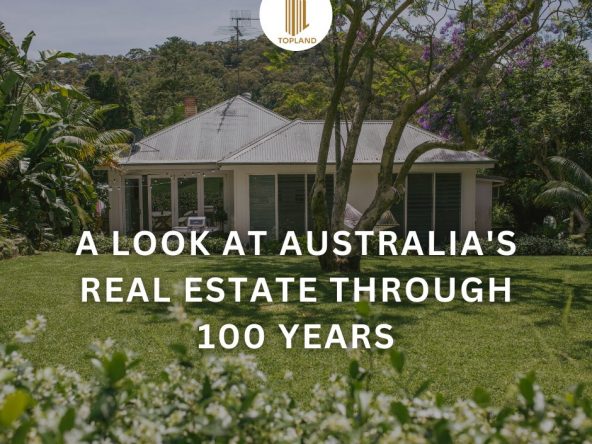In the realm of real estate, the Australian market offers a wealth of opportunities and possibilities for both investors and those seeking to establish their homes in this vast and diverse country. However, before you take the plunge into this exciting landscape, it’s essential to equip yourself with the knowledge and insights that can lead to informed decisions and successful outcomes.
In this article, we will explore 7 fundamental questions that anyone considering investing in Australian real estate or purchasing a home in Australia should know. Regardless of whether you are an experienced investor or a first-time homebuyer, these inquiries will assist you in making choices that resonate with your objectives and aspirations. Let us embark on this exploratory journey, arming ourselves with the necessary information to make prudent real estate decisions in Australian territory.
Outlined below are 7 significant questions to ponder when contemplating investment in Australian real estate or the acquisition of a property in this country..
1. What is the current property price in Australia?
This is the first question that homebuyers in Australia often ask. Property prices in Australia vary depending on the timing and market fluctuations. You can check property prices on official Australian websites or consult information from reputable Australian real estate experts.
As of September 2023, data from Corelogic indicates that the average property value in Australia is $732,886 AUD, and the housing supply has increased to around 11 million properties. The expected growth rate for Australian property prices in 2023 is approximately 4-7% depending on the region in Australia.
 2. How much money do you need to buy a home in Australia?
2. How much money do you need to buy a home in Australia?
When choosing to buy a home in Australia, you need to consider not only your housing needs but also your financial budget to find the most suitable property. Property prices in Australia depend on factors such as location, proximity to city centres (which can result in higher prices), amenities, and local infrastructure. The types of properties such as apartments, townhouses, suburban houses or vacant land, also impact Australian property prices.
Here are the average property prices in various Australian cities:
Sydney: Sydney usually has high property prices, with an average price for a 2-3 bedroom house ranging from 1 million AUD to over 2 million AUD depending on the area.
Melbourne: Property prices in Melbourne are relatively lower than Sydney with an average house price ranging from $600,000 AUD to $1,500,000 AUD or more.
Brisbane: Brisbane has lower property prices compared to Sydney and Melbourne. An average house in Brisbane may cost between $500,000 AUD to $1,000,000 AUD.
Perth: Property prices in Perth vary depending on the area. The average price can range from $450,000 AUD to $850,000 AUD.
Adelaide: Adelaide usually has lower property prices compared to other major cities. An average house here can cost from $400,000 AUD to $600,000 AUD.

3. What is the cost you can pay?
When buying a house in Australia there are several types of costs to be aware of. Here are several lists of important expenses you should know:
1. Stamp Duty: This is a tax imposed on property buyers calculated based on the value of the property. The tax rate can vary depending on the state or territory and the property’s value.
2. Real Estate Agent Fees: If you hire a real estate agent to find a property for you, you will need to pay a service fee, typically calculated as a percentage of the sale price.
3. Legal Fees: You need to hire a lawyer to assist with legal procedures related to the purchase of the property.
4. Land Title Registration Fees: These are fees for registering land ownership documents and transferring the property’s title.
5. Adjustment Costs: These include adjustments for prepaid expenses such as property taxes, water, electricity, and gas.
6. Home Insurance: You should purchase home insurance to protect your property from risks such as fire, natural disasters or theft.
7. Building Inspection Fees: If you want to assess the technical condition of the property before purchasing it, you can hire an expert to inspect and review it.
8. Mortgage Registration Fees: If you are using a mortgage to buy the house you will need to pay a fee to register the mortgage.
9. Conveyancing Fees: These are fees for transferring ownership from the seller to the buyer.
It’s important to bear in mind that these expenses may fluctuate based on where the property is situated and its assessed value. To obtain comprehensive insights into the expenses associated with purchasing a house in Australia, it’s recommended to consult a financial specialist or a legal expert.

4. What are the best cities to invest in Australia?
Australia is a vast country with many cities and regions each presenting distinctive investment prospects. The choice of the best city or region to invest in real estate depends on various factors, including your investment goals, budget, and risk tolerance. Here are some of the top cities for real estate investment in Australia:
Sydney is Australia’s largest and most populous city making it a desirable location for real estate investment. While property prices in Sydney are relatively high, it offers strong rental demand and potential for capital appreciation.
Melbourne is known for its diverse culture excellent education institutions, and strong job market. It’s a popular choice for property investment with a range of property types available.
Brisbane is an emerging real estate market offering more affordable property prices compared to Sydney and Melbourne. It has a growing economy and is known for its lifestyle and climate.
Perth is the capital of Western Australia and has a growing property market. It’s known for its mining industry and offers investment opportunities in various property types.
Adelaide is known for its affordability and quality of life. It’s a stable market with potential for growth.
Canberra as the capital city of Australia,Canberra presents distinctive investment prospects. It has a strong job market due to its government presence.
Gold Coast and Sunshine Coast: These coastal regions in Queensland are popular for holiday rentals and lifestyle properties.
When choosing a city to invest in consider factors such as the local economy, population growth, rental demand, and infrastructure development. Conduct thorough research and consult with local real estate experts to make an informed decision.

5.What types of properties available in the Australia realestate market?
Australia offers a wide range of real estate property types catering to various preferences and investment strategies. Here are some common types of properties available in the Australian real estate market:
– Apartments and Units: Apartments, condos, and units are multi-family dwellings that are popular in urban areas. They vary in size and can be an affordable option for both homeowners and investors.
– Townhouses: Townhouses offer a balance between the space of a house and the convenience of an apartment. They are often located in residential communities and may have shared amenities.
– Villas and Duplexes: Villas and duplexes are similar to houses but are often smaller in size. They are typically part of a larger complex and may have shared facilities.
– Land: Buying vacant land is an option for those who want to build their own custom home or invest in land development. Land prices vary based on location and size.
– Commercial Properties: Commercial real estate includes offices, retail spaces, industrial properties, and more. Investing in commercial properties can provide rental income and potential for capital appreciation.
– Rural Properties: Rural properties such as farms and acreages are available in regional areas. They are suitable for those seeking a rural lifestyle or agricultural investment.
Each type of property comes with its advantages and considerations. The choice of property type should align with your investment goals and budget.

6. How can you finance the purchase of real estate in Australia?
Financing the purchase of real estate in Australia typically involves a combination of personal savings, mortgage loans, and other sources of funding. Here are common methods of financing a property purchase in Australia:
– Personal Savings: Using your own savings is the simplest and most straightforward way to finance a property purchase. It eliminates the need for a mortgage and interest payments.
– Mortgage Loans: Most property buyers in Australia, including foreigners, rely on mortgage loans to purchase real estate. Australian banks and financial institutions offer various mortgage options, including fixed-rate and variable-rate mortgages. The amount you can borrow depends on your financial situation, credit history, and the lender’s policies.
– Home Loan Deposit: When applying for a mortgage in Australia you will typically need to provide a deposit. The minimum deposit required is usually 20% of the property’s purchase price. However, some lenders may accept a lower deposit amount but this may result in additional fees and insurance costs.
– Mortgage Insurance: If you have a deposit of less than 20%, you may be required to pay Lender’s Mortgage Insurance (LMI). LMI is an insurance policy that protects the lender in case you default on your loan. The cost of LMI varies based on the loan amount and the size of your deposit.
– Overseas Financing: Some foreign investors choose to secure financing from their home country to purchase property in Australia. This can be a complex process, and it’s essential to work with financial institutions experienced in cross-border transactions.
– Consultation with Mortgage Brokers: Mortgage brokers in Australia can assist you in finding suitable loan options and guide you through the mortgage application process. They have access to multiple lenders and can help you secure competitive rates.
It’s essential to consult with financial experts and mortgage brokers to determine the most suitable financing option for your property purchase in Australia.

7. What are the key factors to consider before finalising a property purchase in Australia?
Before finalising a property purchase in Australia, there are several key factors to consider to ensure a successful transaction:
Property Inspection: Conduct a thorough inspection of the property to identify any issues or defects. Consider hiring a professional inspector to provide a detailed report.
Legal Advice: Seek legal advice from a qualified solicitor or conveyancer to review the property’s legal documents, contracts, and conduct due diligence.
Negotiation: Negotiate the price and terms of the property purchase with the seller or their agent. Be prepared to make a reasonable offer based on market conditions and property value.
Contract of Sale: Review the Contract of Sale carefully and understand its terms and conditions before signing. Ensure that any special conditions or requirements are included in the contract.
Due Diligence: Perform due diligence on the property including checking the property’s title, land zoning, and any existing encumbrances or easements.
Settlement: The settlement process involves transferring ownership of the property and completing the financial transaction. Ensure that you have the necessary funds available for settlement.
Property Insurance: Arrange property insurance to protect your investment. This includes building and contents insurance as well as landlord insurance if you plan to rent out the property.
Property Management: If you’re buying the property for investment purposes, consider hiring a property management company to handle tenant selection, rent collection, and property maintenance.
Tax Implications: Understand the tax implications of owning real estate in Australia including property taxes, capital gains tax, and income tax.
Resale Value: Consider the potential resale value of the property and the factors that may affect it in the future.
Local Regulations: Familiarize yourself with local regulations such as zoning laws, building codes, and rental laws that may impact your property investment.
Currency Exchange: If you are purchasing the property with foreign currency be aware of exchange rates and any currency conversion fees.
It’s crucial to work with experienced professionals such as real estate agents, solicitors, and mortgage brokers, throughout the property purchase process to ensure a smooth transaction and protect your interests.
More Ideal Project HERE for you
______________
LIKE AND FOLLOW US ON FACEBOOK FOR NEWS
CONTACT US NOW: 02 8021 3139


 2. How much money do you need to buy a home in Australia?
2. How much money do you need to buy a home in Australia?


